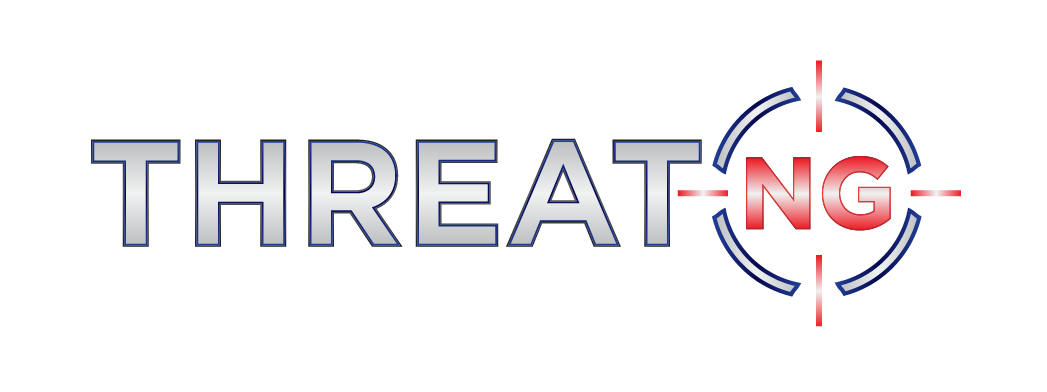
Mobile App Intelligence
Comprehensive Mobile App Intelligence for Proactive Security
Mobile applications are essential to any organization's digital presence in today's digital landscape. However, they can also introduce significant security risks. ThreatNG's Mobile App Intelligence provides unparalleled visibility and assessment of your organization's mobile app attack surface. By discovering and analyzing apps across various marketplaces, ThreatNG identifies potential vulnerabilities, empowering security teams to mitigate risks effectively and secure their mobile ecosystem.
Mobile App Exposure Score
It provides a letter grading system (A-F) to communicate the severity of an organization's vulnerability to adverse consequences from security risks within its mobile applications. The grading system aligns with ThreatNG's Digital Presence Triad, assessing Feasibility (ease of exploitation), Belief (likelihood of damage to reputation), and Impact (potential consequences of an attack). This scoring system helps organizations prioritize risks and focus resources on areas with the most significant potential for reputational or financial damage.
Mobile App Intelligence Repository (DarCache Mobile)
A continuously updated intelligence repository that scans mobile apps to identify and categorize exposed sensitive information. This includes authentication tokens, API keys, private keys, and other credentials. It provides deep visibility into the security posture of your organization’s mobile apps, enabling you to identify and remediate vulnerabilities that could expose sensitive data. By addressing these vulnerabilities, organizations can strengthen their overall security, improve their security ratings, and better manage digital risk across their ecosystem.
Mobile App Discovery Module
Part of the Sensitive Code Exposure Investigation Module, this provides comprehensive visibility and assessment of an organization's mobile app attack surface. It discovers apps across various marketplaces, including official (e.g., Apple App Store, Google Play) and third-party stores, to uncover vulnerabilities and secure your mobile app attack surface. The module analyzes apps for exposed credentials, security credentials, and platform-specific identifiers, empowering security teams to mitigate risks associated with mobile app exposures. This helps organizations prevent data leaks, protect brand reputation, and enhance their overall security posture.
Mobile App Intelligence Frequently Asked Questions (FAQs)
-
ThreatNG's mobile app intelligence capabilities are crucial because they give organizations essential visibility and assessment of their mobile app attack surface. Mobile apps are critical to an organization's digital presence in today's digital landscape. Still, they can also introduce significant security risks, such as exposing sensitive information and creating vulnerabilities that attackers can exploit.
-
A wide range of stakeholders within an organization can benefit, including:
Security Teams: To proactively identify and mitigate risks associated with mobile app exposures, reduce the attack surface, and improve overall security posture.
Risk Management Professionals: To understand and reduce cyber risk exposure related to mobile apps.
Brand Managers: Protect brand reputation by identifying and addressing insecure or malicious mobile apps.
Compliance Officers: Ensure mobile apps comply with data privacy regulations.
IT Departments: Secure SaaS integrations and manage mobile devices and their access to corporate resources.
Legal and Due Diligence Teams: Evaluate acquisition risks and vendor security related to mobile apps.
Application Development Teams: Ensure secure coding practices and address vulnerabilities early in the development lifecycle.
-
ThreatNG's mobile app intelligence capabilities integrate with other ThreatNG solutions to provide a holistic security approach:
External Attack Surface Management (EASM): Mobile App Discovery is crucial for EASM because it provides comprehensive visibility of an organization's mobile app footprint, enables proactive risk mitigation, and enhances the overall security posture. DarCache Mobile identifies vulnerabilities within mobile apps, providing a more complete view of an organization's attack surface. The Mobile App Exposure Score strengthens external attack surface management by uncovering hidden risks.
Digital Risk Protection (DRP): ThreatNG prevents data leaks by uncovering exposed credentials and API keys within mobile apps, protecting brand reputation by identifying insecure apps, and using intelligence repositories to contextualize mobile app risks.
Security Ratings: Mobile app security assessments contribute to a more accurate evaluation of an organization's overall security posture, and addressing mobile app vulnerabilities can improve an organization's security ratings.
Brand Protection: ThreatNG detects malicious or fake app versions, prevents data breaches that could damage brand reputation, and helps maintain customer trust by ensuring the security and integrity of mobile apps.
Cloud and SaaS Exposure Management: ThreatNG identifies cloud credentials exposed in mobile apps, secures SaaS integrations, and prevents data leakage that could expose sensitive information stored in cloud environments.
Third-Party Risk Management: ThreatNG assesses the security of third-party apps, helps prevent supply chain attacks, and ensures third-party apps comply with an organization's security policies.
Due Diligence: ThreatNG helps evaluate acquisition risks, vendor security, and investment risks related to mobile apps, providing valuable insights for informed decision-making.
-
Mobile app intelligence is crucial across various use cases:
Risk Identification and Mitigation: Proactively identifying vulnerabilities and potential threats in mobile apps to minimize the risk of attacks and data breaches.
Data Leak Prevention: Uncovering exposed credentials, API keys, and other sensitive information within mobile apps to prevent unauthorized access and data leaks.
Brand Reputation Protection: Identifying and addressing insecure or malicious mobile apps that could damage an organization's reputation or lead to customer distrust.
Third-Party Risk Management: Assessing the security of third-party mobile apps to prevent supply chain attacks and ensure compliance with security policies.
Cloud and SaaS Security: Identifying cloud credentials exposed in mobile apps and securing SaaS integrations to prevent unauthorized access to cloud resources and data breaches.
Due Diligence: Evaluating the security posture of mobile apps during mergers, acquisitions, or partnerships to make informed decisions and reduce potential liabilities.
Comprehensive Risk Management: Gaining a holistic view of an organization's security posture by integrating mobile app security with other security domains, enabling effective digital risk management across the entire ecosystem.
-
Here are some examples:
ThreatNG could identify an organization's mobile app that inadvertently exposed an API key, allowing unauthorized access to sensitive data.
ThreatNG could detect a malicious version of an organization's app designed to steal user credentials.
ThreatNG could monitor app marketplaces for updates and alert security teams if a new version introduces vulnerabilities.
DarCache Mobile helps organizations proactively mitigate risks and protect their sensitive data by identifying exposures like authentication tokens and keys, authentication credentials, OAuth credentials, service account/key files, and private keys.
ThreatNG's Mobile App Exposure Score helps organizations prioritize mobile app security risks based on real-world scenarios. It allows them to focus resources on the areas with the greatest potential for reputational or financial damage.
-
DarCache Mobile scans mobile apps from various sources and analyzes their code and behavior to identify:
Exposed authentication tokens and keys: API keys, access tokens, and other credentials that could grant unauthorized access to sensitive data and systems.
Authentication credentials: Usernames, passwords, and other sensitive authentication information.
OAuth credentials: Client IDs, secrets, and other OAuth-related information that could be misused.
Service account/key files: Files containing sensitive credentials for accessing cloud resources.
Private keys: Cryptographic keys used for encryption, decryption, and authentication.
DarCache Mobile helps organizations proactively mitigate risks and protect their sensitive data by identifying these exposures.





